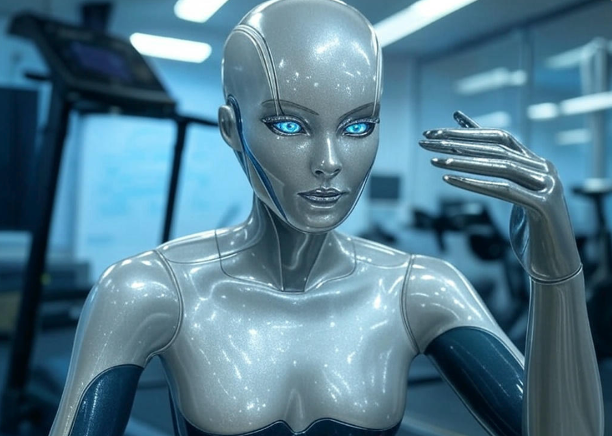Are High-Tech Workout Systems Like Peloton, Tonal, and Mirror Still Relevant in the AI Era?
- baavir33
- Feb 22, 2025
- 2 min read
As artificial intelligence reshapes industries worldwide, the fitness sector is experiencing a transformative shift. High-tech hardware workout systems such as Peloton, Tonal, and Mirror have gained significant traction in recent years, offering immersive, interactive exercise experiences. However, the rise of AI-driven fitness solutions raises an important question: Will these hardware-intensive platforms remain relevant, or will AI-driven apps and virtual coaching render them obsolete?
The Rise of AI in Fitness
AI-powered fitness solutions, such as virtual personal trainers and adaptive workout algorithms, have disrupted traditional workout systems. AI-driven fitness platforms like Future, Freeletics, and Fitbod provide personalized workout recommendations, real-time adjustments, and data-driven performance tracking without requiring expensive hardware. AI’s ability to analyze biometric data, optimize routines, and deliver customized feedback has created a compelling alternative to costly hardware setups.
Why Hardware-Based Fitness Systems Still Matter
Despite the rapid growth of AI-driven fitness apps, hardware-based workout systems continue to hold significant advantages:
1. Immersive and Interactive Workouts
Peloton, Tonal, and Mirror offer a high level of engagement through live and on-demand classes, interactive leaderboards, and real-time coaching. Unlike AI-only apps, these systems create a sense of community, accountability, and motivation.
2. Advanced Resistance Training
Tonal’s electromagnetic resistance technology provides precise weight adjustments that AI apps alone cannot replicate. The hardware ensures a controlled, efficient strength-training experience that appeals to serious athletes and fitness enthusiasts.
3. Premium User Experience
High-tech workout systems provide a seamless, all-in-one experience. Users don’t need to purchase separate weights, resistance bands, or smart sensors, as everything is integrated into the system. This level of convenience and quality is unmatched by AI-driven apps alone.
4. Long-Term Investment for Home Gyms
Consumers who invest in systems like Peloton and Tonal view them as long-term fitness solutions. The physical infrastructure, combined with ongoing software updates, offers a robust, evolving fitness ecosystem.
Challenges Facing Hardware-Based Systems
While these workout platforms offer premium experiences, they face several challenges in an AI-driven fitness landscape:
1. High Cost and Accessibility
Peloton, Tonal, and Mirror require substantial upfront investments, making them less accessible than AI-powered apps, which offer flexible subscription-based pricing.
2. AI-Powered Alternatives are Becoming More Advanced
AI-based fitness coaching continues to improve, with companies integrating wearable technology and advanced motion tracking. Solutions like Tempo and smart dumbbells bridge the gap between AI coaching and traditional hardware, offering similar benefits at a fraction of the cost.
3. Subscription Fatigue
Many users are wary of ongoing subscription costs associated with hardware-based platforms. AI-driven alternatives often provide more affordable and scalable solutions without requiring expensive hardware purchases.
The Future: Hybrid Fitness Models
Rather than a complete shift away from hardware-based workout systems, the future likely lies in a hybrid model. Companies like Peloton and Tonal are already integrating AI-powered recommendations, tracking, and adaptive coaching into their ecosystems. The combination of high-quality hardware and AI-driven intelligence may define the next generation of fitness technology.
Conclusion: Will AI Wipe Out Hardware Workout Systems?
AI-driven fitness solutions will continue to grow, but they are unlikely to replace hardware-intensive workout systems entirely. Instead, the industry is moving toward hybrid models that merge AI's adaptability with high-quality, immersive workout hardware. Companies that successfully integrate AI while maintaining their hardware advantages will remain competitive in the evolving fitness landscape.




Comments